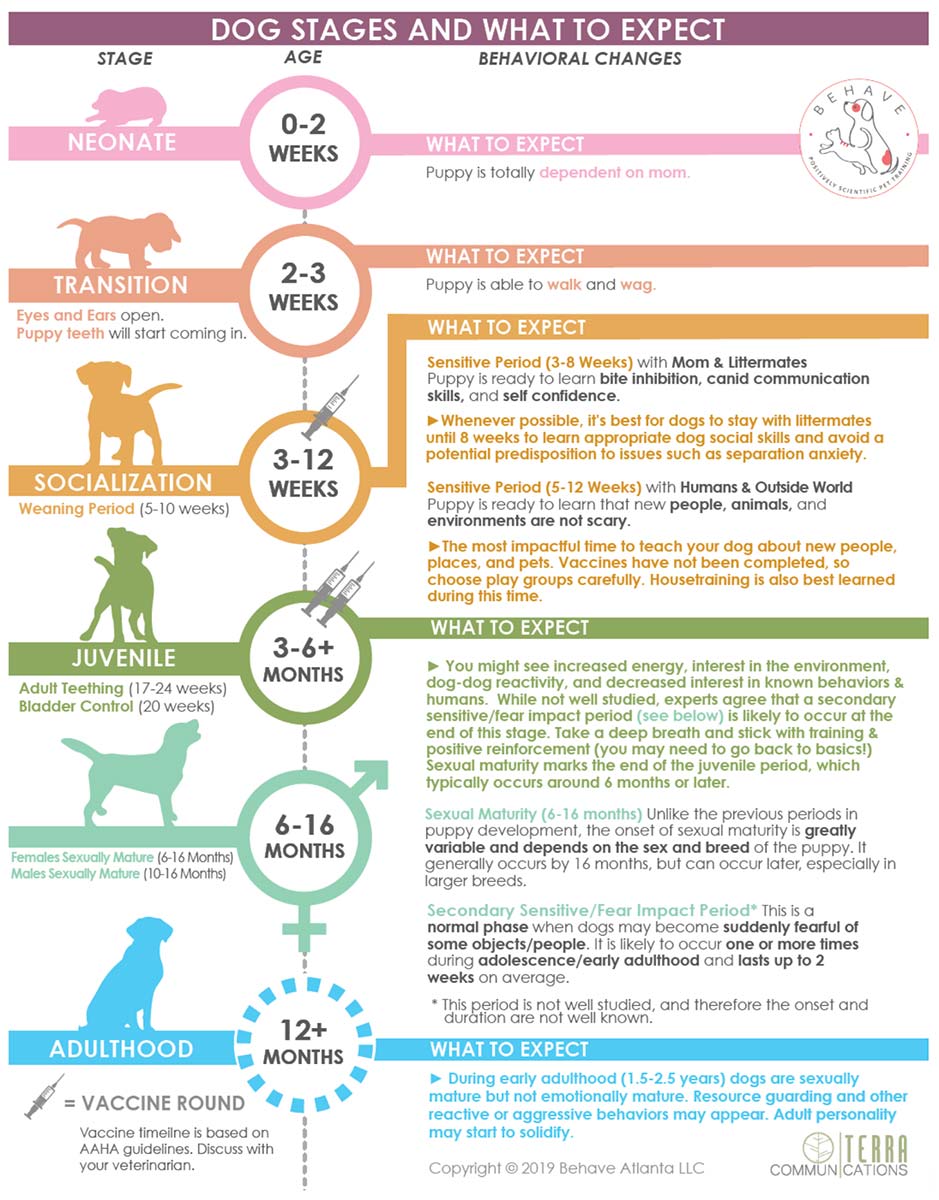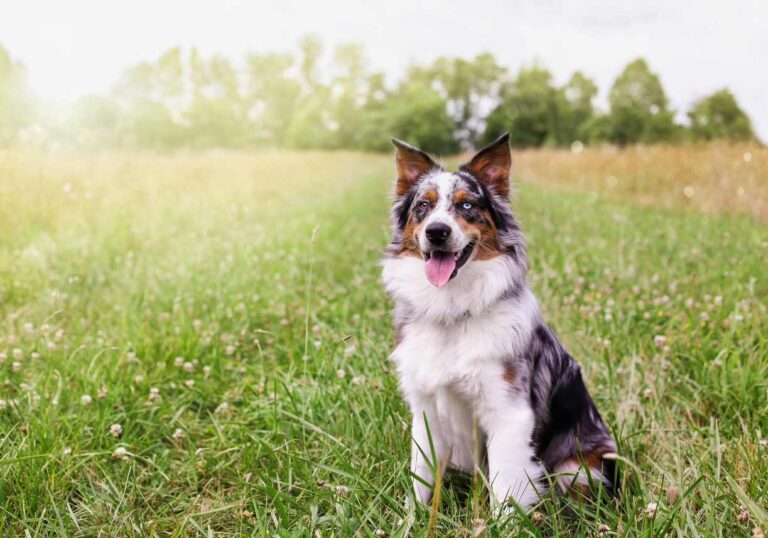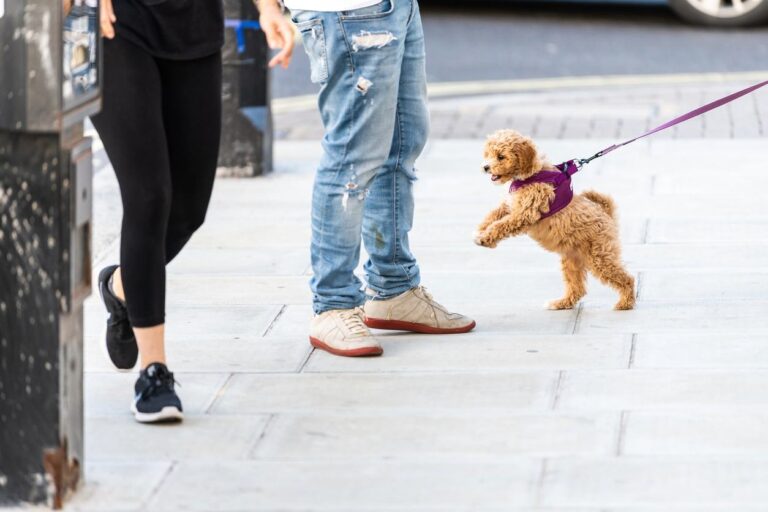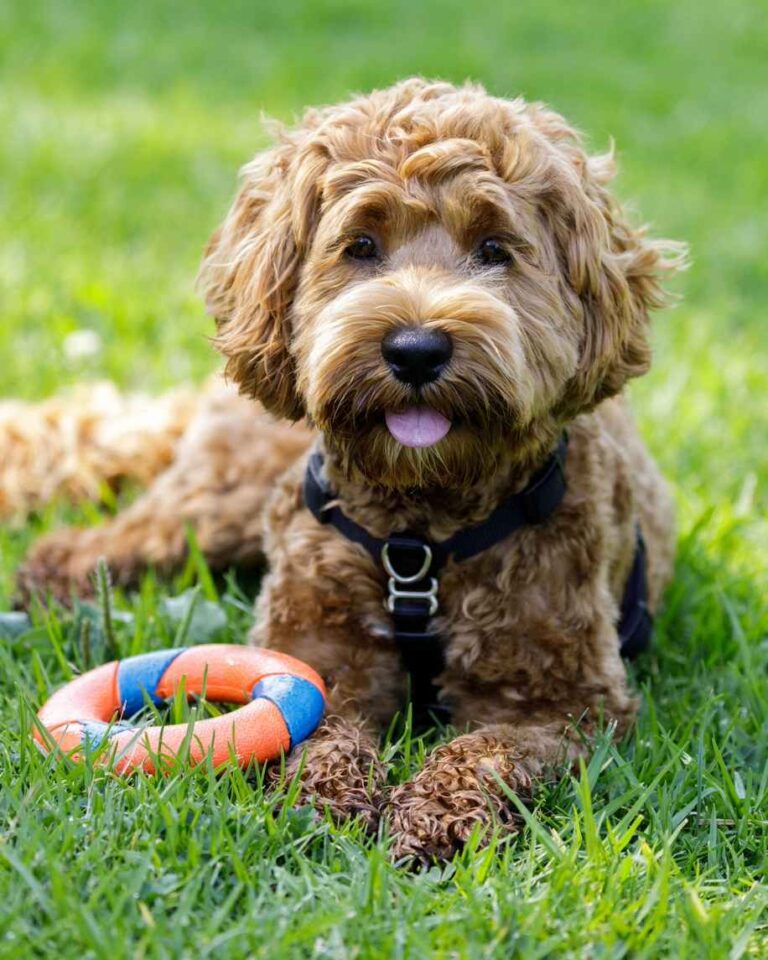My friends said they sent their dog to a board and train program straight from their breeder.
My breeder says not to train my puppy until they are a year and half and neutered by the vet.
My vet says don’t take my puppy outside in public until they have had all of their vaccinations.
So which is it?
We totally understand there is a lot of information out there on having a new puppy and training them. Ultimately, we believe training in safe environments early is not only a great way for your puppy to engage in crucial developmental and socialization skills, it is also an amazing way for your puppy to burn off physical and mental energy, AND offers a great opportunity to further develop your bond with your puppy. So let’s talk facts:
Right around the time you are probably bringing your puppy home, is also one of the most important developmental milestones in their lives. Between 3-12 weeks, sometimes even extending to 16 weeks, it is crucial that during that time period, your puppy is engaging in appropriate socialization. We have added a chart below to help break it down for you!

Okay so now that you know that time frame is crucial for socialization and learning, how can you accomplish this safely? And how will training impact all of this?
Dr. Kristyn Echterling-Savage, our very own founder and Certified Applied Animal Behaviorist, recommends that socialization, basic puppy manners such as jumping, chewing, and play biting, and housebreaking can and should begin as soon as your puppy comes home. A few ways we recommend to safely socialize and train your puppy are by one-on-one playdates with a friendly (and vaccinated) known dog, taking them on car rides, walking them through a “human” store, having family or neighbors over to interact with them, etc.
Once your puppy reaches the age of 14 weeks, they are now in the juvenile phase and begin to actively search out ways to engage and explore in their environments. This is why it is the perfect age to consider starting more “advanced” obedience training such as sits, downs, come, place and more. Whether you decide to start training your puppy yourself or choose to seek out professional help, we recommend taking the necessary safety precautions, and to stay in social environments that will not pose a high risk of transmittable diseases (such as the ones listed above). Once your puppy is fully vaccinated (typically 16 weeks) you can then more freely walk and train around grassy areas, dog parks, etc.
If you think you are interested in talking or meeting with a professional dog trainer, we would be happy to speak with you further and you can find our contact information here. Happy puppy training!




